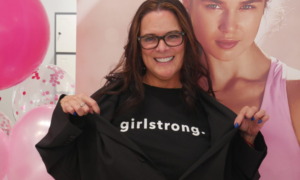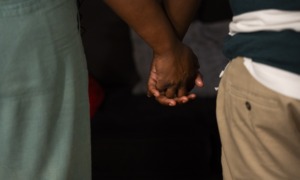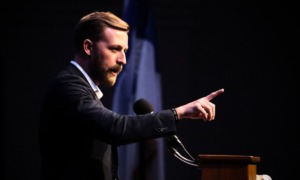The federal government has moved to eradicate the potentially corrupting influence of youth on politics by banning them from contributing to national candidates and parties.
A little-noticed provision of the campaign finance reform law passed last month prohibits such contributions by anyone age 17 and younger.
The law is not really aimed at curbing youth contributors, who’ve ostensibly poured thousands of dollars into campaign coffers; it’s aimed at adults who circumvent campaign finance laws by contributing money in the names of their children.
One youth organization is making calls to Capitol Hill to express outrage.
“It’s a betrayal of politicians against youth. Everybody complains about how apathetic or uninvolved youth are, then they pass legislation like this,” said Alex Koroknay-Palicz, 20, president of the National Youth Rights Association in Washington, D.C. The association claims about 1,500 members in college chapters.
The House passed the Bipartisan Campaign Reform Act of 2002 (HR 2356) in February, followed by the Senate last month, with President Bush agreeing to sign it.
Under current law, minors can contribute the same amounts as adults: $1,000 a year to a federal candidate, $5,000 to a political committee and $20,000 to a national party, but no more than $25,000 a year total, according to the Federal Election Commission (FEC).
The current law also stipulates that contributions from minors must be made willingly and knowingly, and come from funds the minor controls. Parents cannot give children money to make contributions.
Not surprisingly, there have been reports that some parents have done exactly that.
“The FEC basically realized there was substantial evidence of parents using the provision to bundle contributions,” said Bridger McGaw, press secretary to Rep. Martin T. Meehan (D-Mass.). Meehan was one of the bill’s original sponsors. “Reformers believe that prohibitions on minors restores the integrity of contribution limits.”
During debate on the campaign measure last month, Sen. John McCain (R-Ariz.) cited a Los Angeles Times article that said “students” contributed $7.5 million to candidates and parties between 1991 and 1998. “Upon further investigation, some of these contributions where made by infants and toddlers,” McCain said. “In another instance, the paper found that two high school sisters contributed $40,000 to the Democratic Party in 1998. When asked about the contribution, the high school sophomore answered that it was a ‘family decision.’”
With the reform law tightening restrictions on other types of contributions and raising individual donor limits, the provision makes some sense, said Paul Taylor, executive director of the Alliance for Better Campaigns, based in Washington.
“You might have a pattern where an individual makes the maximum contribution for himself, and then for his wife and each of his four kids,” Taylor said. “On that level it’s a good step, but I think it might have been better to cap” the amounts that youths can contribute.
Some campaign and political activists see the provision as a detriment to youth participation.
“I don’t think a blanket prohibition is the way to go, because what you’re saying to people under 18 is, ‘We don’t care who you support,’” said Marjorie Blakely, chairwoman of the Virginia Young Republicans. The group offers membership to Republicans age 17 to 40, and associate membership to younger teens. The club has at least 200 members under 18, said Blakely. “Once you turn people away from any aspect [of participation], it’s hard to get them back,” she said.
Koroknay-Palicz said political contributions “instill in young people a sense of political involvement that can continue for the rest of their lives.” He said that depending on its interpretation, the provision could bar young people from political parties that charge dues.
Annoying young activists might be the provision’s biggest impact. It is not expected to have a significant effect on contributions, although it is virtually impossible to peg how much money minors contribute each year. Federal law requires only the names and addresses of donors who give more than $50, and the occupations of those who give more than $200. “Student” is an acceptable occupation, and groups that track campaign finances use it as a crude gauge of youth involvement.
“There’s not a lot of money, frankly, from ‘students,’” said Larry Makinson, senior fellow at the Center for Responsive Politics, where the database lists 509 “student” donors for the current federal election cycle.
Back at Meehan’s office, McGaw said requiring donors to be at least 18 makes sense. “At 18, you knowingly register for the draft, you knowingly register to vote and you knowingly make political contributions,” he said. “Stifle political participation? I don’t think so. Contributing money is not what youth should be offering.”































